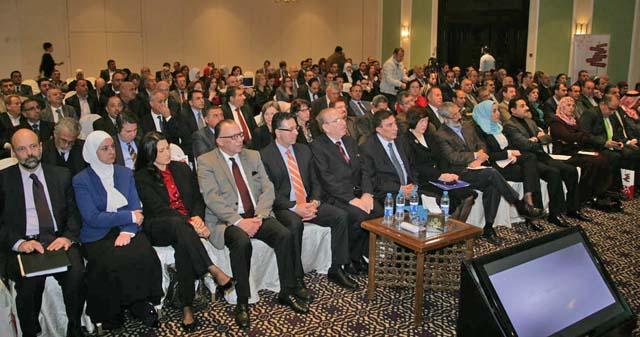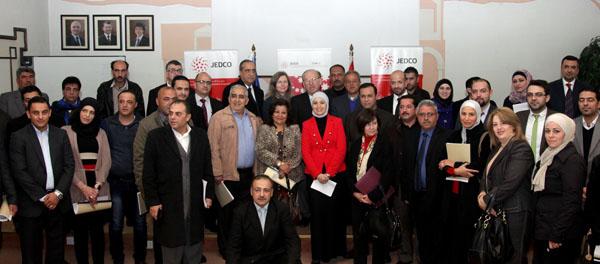DEAD SEA — The government should not be the sole entity responsible for creating jobs in the Kingdom, the Jordan Enterprise Development Cooperation (JEDCO) said on Thursday.
“The government cannot, and should not, be the body responsible for generating jobs; it is the responsibility of the private sector,” JEDCO CEO Yarub Qudah said, noting that the Kingdom has the world’s highest percentage of public sector jobs compared to the population.
“It’s all about creating jobs,” he added at the opening session of a two-day conference entitled “Private Sector Led-Growth: promoting entrepreneurship, MSME development and job creation in Jordan”.
Organised by JEDCO in cooperation with the “Mubadara” parliamentary initiative, the event sheds light on the role of the private sector in backing micro, small and medium enterprises (MSME).
With small- and medium-sized enterprises (SMEs) representing nearly 97 per cent of the total private sector businesses, Qudah called for coming up with one applicable national strategy that identifies funding and coordinating entities.
The conference is providing an opportunity for representatives of the public and private sectors, the EU and international organisations working in the area of financing and development to discuss best practices to promote entrepreneurship and present a draft on the national strategy and regulations governing SMEs.
MP Mustafa Hamarneh, the leader of “Mubadara”, said small businesses are the only means through which Jordan can salvage its troubled economy, and yet the government is “punishing successful private enterprises with taxes”.
Hamarneh stressed the need for the government to protect the middle class, not by creating more public posts, but by facilitating the creation of sustainable private sector jobs.
In his address on behalf of Prime Minister Abdullah Ensour, Industry and Trade Minister Hatem Halawani underlined the need for a “modern” law that covers the needs of economic ventures in all their stages and which serves their interests.
Halawani noted that problems related to poverty and unemployment should be addressed in cooperation between the public and private sectors and civil society organisations.
Lower House Speaker Atef Tarawneh agreed, stressing the need to extend loans to SMEs after training beneficiaries in order to ensure the success of their schemes instead of further burdening the economy.
Meanwhile, EU Ambassador to Jordan Joanna Wronecka noted that the Kingdom needs a stronger and more dynamic private sector that is able to provide innovative ideas, citing EU support to develop SMEs in the country.
“There is a current gap between education outcomes and market needs, and this poses a threat to Jordan,” Wronecka said, adding that a plan is in the pipeline now to develop human resources and match their abilities with those in demand in cooperation with the EU.



















